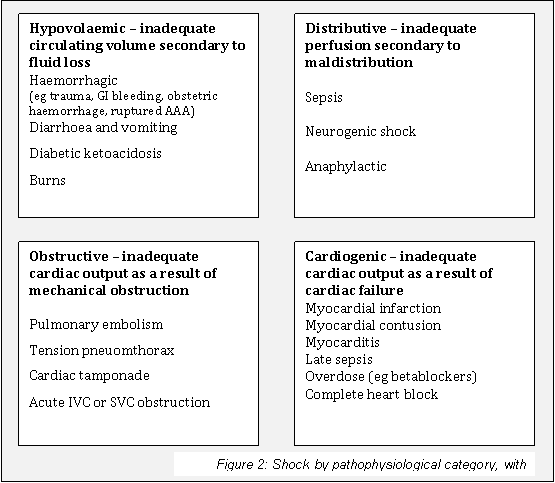
Distributive Shock Pathophysiology. Inflammatory cytokines released in both sepsis and toxic shock syndrome induce systemic vasodilation and capillary leak as well as cardiomyopathy. So that is distributive shock. Distributive shock is a medical condition in which abnormal distribution of blood flow in the smallest blood vessels results in inadequate supply of blood to the body s tissues and organs. 1 2 it is one of four categories of shock a condition where there is not enough oxygen carrying blood to meet the metabolic needs of the cells which make up the body s tissues and organs.

Distributive shock is a medical condition in which abnormal distribution of blood flow in the smallest blood vessels results in inadequate supply of blood to the body s tissues and organs. Distributive shock results from excessive vasodilation and the impaired distribution of blood flow. Inflammatory cytokines released in both sepsis and toxic shock syndrome induce systemic vasodilation and capillary leak as well as cardiomyopathy. Systemic vasodilation leads to decreased blood flow to the brain heart and kidneys causing damage to vital organs. Distributive shock also known as vasodilatory shock is one of the four broad classifications of disorders that cause inadequate tissue perfusion. Septic shock is the most common form of distributive shock and is characterized by considerable.
Distributive shock is a medical condition in which abnormal distribution of blood flow in the smallest blood vessels results in inadequate supply of blood to the body s tissues and organs.
Systemic vasodilation leads to decreased blood flow to the brain heart and kidneys causing damage to vital organs. He distributive shock is a type of shock in which abnormal changes occur in blood flow. And that is your crash course on distributive shock. Distributive shock just means that there is so much vasodilation in the body that the blood can t get to where it needs to go and the organs become very unhappy because they aren t getting the blood they need and they start to fail. Inflammatory cytokines released in both sepsis and toxic shock syndrome induce systemic vasodilation and capillary leak as well as cardiomyopathy. Specifically in the way in which this body fluid is distributed so that the entrance of the same to the tissues of the organs eg vital organs being the most important in the human body is severely impaired especially if there are alterations the nervous system harmful chemicals and infections of various kinds.